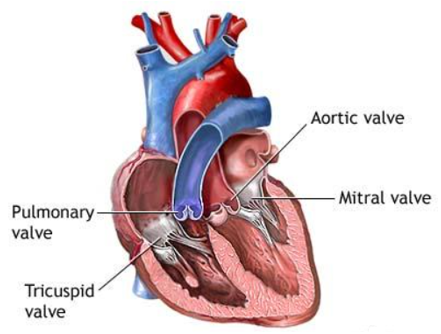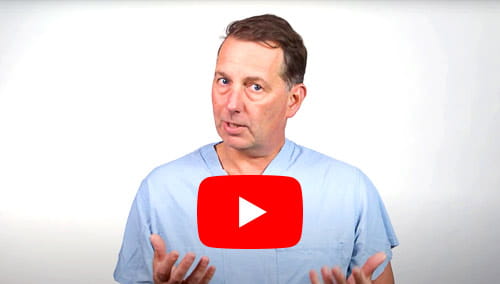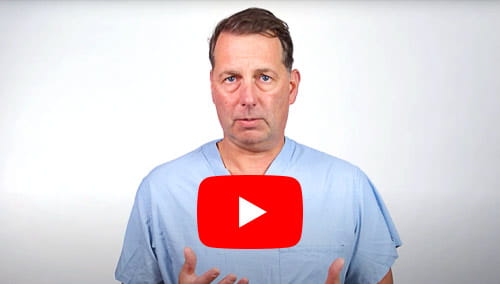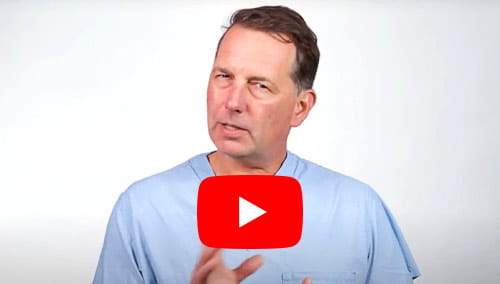Excellence in Heart Valve Disease Diagnosis and Treatment at University Hospitals
University Hospitals Harrington Heart & Vascular Institute specialists are nationally recognized for excellence in heart valve disease diagnosis and treatment. We use a team approach to ensure heart valve disease is identified as early as possible and deliver the latest therapies for the best patient outcomes.
Your health is important. Get expert care.
Offering in-person, video and telephone visits. Call 216-844-3800 today to see which option is right for you.
Find a Doctor
As a leader in heart valve clinical trials available only in select U.S. programs, our specialists are able to offer the latest treatment options to a larger number of patients. With clinical expertise and strong patient education, our goal is to minimize or resolve heart valve issues and prevent these conditions from causing other serious problems such as stroke, arrhythmias, hypertension and heart failure.
In many cases, medication and lifestyle changes will reduce the effects of heart valve disease. However, if those therapies do not work, minimally invasive or open surgical heart valve repair or replacement may be necessary. Our team has the expertise to diagnose and treat even the most complex heart valve condition.
What is Valve and Structural Heart Disease?
Heart valve disease occurs when one or more of the four valves in your heart cannot function properly. The heart’s valves assist in controlling the flow of blood through the chambers of the heart. When heart valve disease is present, a valve may be unable to close properly or open completely. This can force your heart to work harder every time it beats. Our team treats all types of heart and vascular conditions, including the full range of heart valve diseases:
Identifying Heart Valve Disease with Comprehensive Diagnostic Tests
The symptoms of heart valve disease are often confused with conditions such as stress or the effects of physical inactivity or aging. If you experience any symptoms or have a heart murmur, our heart specialists may use one or a few diagnostic tests to determine whether heart valve disease is present.
Heart Valve Disease Treatment to Protect Valves and Reduce Symptoms
The main goals of treating heart valve disease include protecting the valves from further damage, reducing symptoms and repairing or replacing valves for long-term heart health. Our heart specialists often recommend a combination of treatments depending on which valve is affected.
Find a Heart Valve Disease Specialist
If you have questions about heart valve disease or concerns about symptoms affecting your heart function, schedule an appointment with one of our team members.
What Causes Valve and Structural Heart Disease?
Valve and structural heart disease can develop before birth, (congenital), be acquired during your lifetime or result from an infection. Causes include:
- Changes or damage in the heart valve structure or weakening of the valve tissue due to aging, coronary artery disease, heart attack, high blood pressure, untreated infection or injury
- Calcification accumulating on the valves
- Congenital birth defects
- Radiation received as treatment for childhood cancer
- Related illnesses and conditions including infective endocarditis, syphilis and rheumatic fever
- Myxomatous degeneration, an inherited connective tissue disorder that weakens the heart valve tissue
Can Structural and Valve Heart Disease Be Prevented?
Valvular disease has become an increasing problem in recent years. It is more common among older people because as we age, our heart valves can become lined with calcium deposits that cause the valve flaps to thicken and become stiffer.
You’re also at higher risk for valve or structural heart disease if you have risk factors for coronary heart disease, including high cholesterol, high blood pressure, smoking, insulin resistance, diabetes, being overweight or obese, lack of physical activity, and a family history of early heart disease.
Heart-healthy eating, physical activity and other heart-healthy lifestyle changes can make a significant impact on your heart health.
Heart Surgery Frequently Asked Questions
Marc Pelletier, MD, University Hospitals Harrington Heart & Vascular Institute Chief, Cardiac Surgery, answers frequently asked questions about heart valve disease.
Make an Appointment
Your health is important. Get expert care.
Offering in-person and virtual visits.
Find a heart valve specialistLearn more about virtual visit





